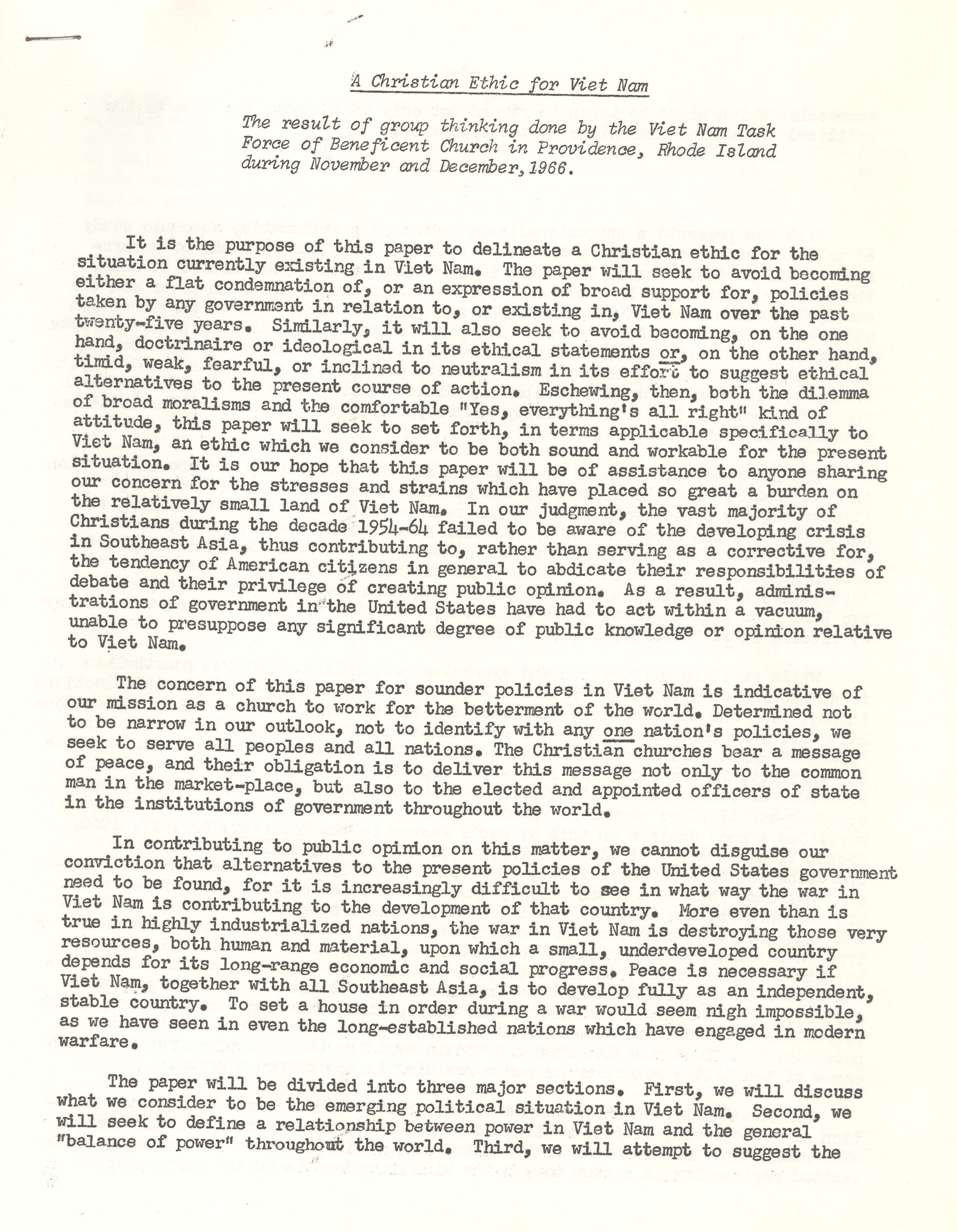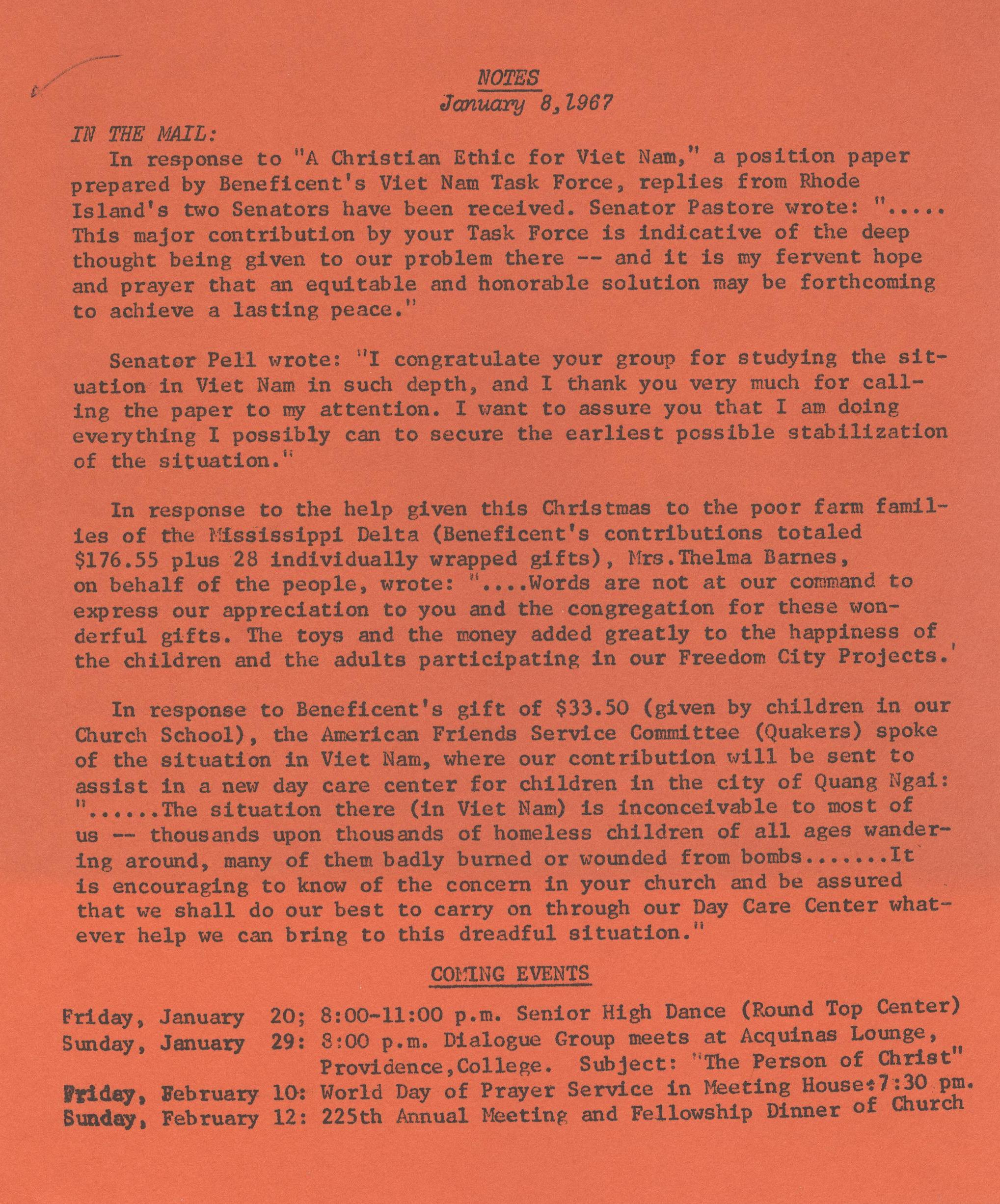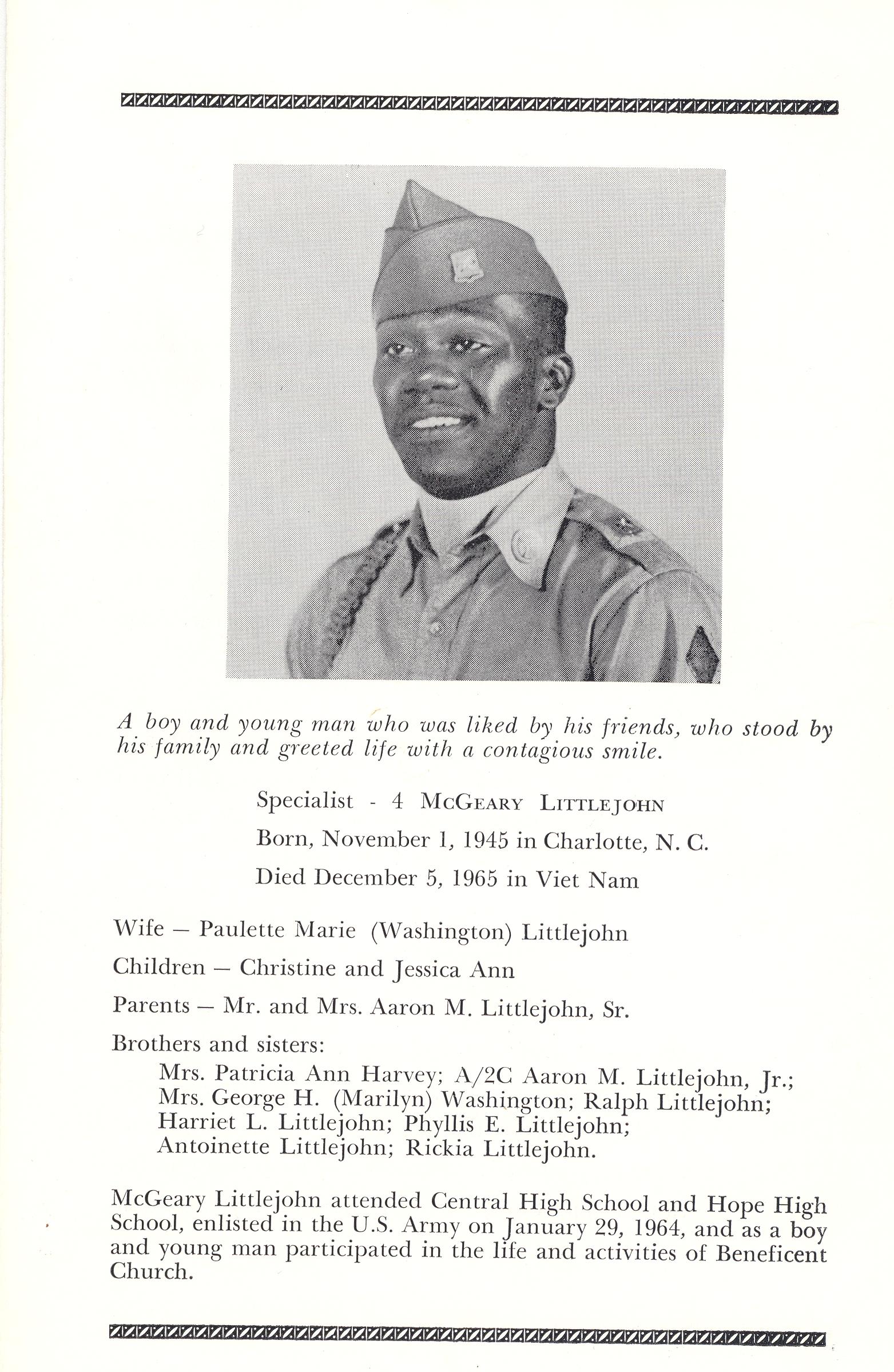
Mr. Littlejohn who was born in Charlotte, North Carolina, had been a long time member of the Beneficent Church in Providence, RI. He attended both Central and Hope High Schools in Providence before enlisting in the United States Army on January 29, 1964.
According to Rev. A. Ralph Barlow, Pastor Emeritus of the Beneficent Church in Providence, Littlejohn was “…not only the first black Rhode Island soldier killed in Vietnam. He was the first soldier from Rhode Island, per se, killed in that conflict.”
He left behind his wife, Paulette Marie (Washington), children Christine and Jessica Ann, parents Mr. and Mrs. Aaron M. Littlejohn, Sr. and many brothers and sisters.
In response to his death, members of the Beneficent Congregational Church not only passed a resolution dated December 15, 1965 dedicating themselves to ending the Vietnam War but also called upon the country’s leadership to find new methods of bringing freedom, justice and decency to the world.
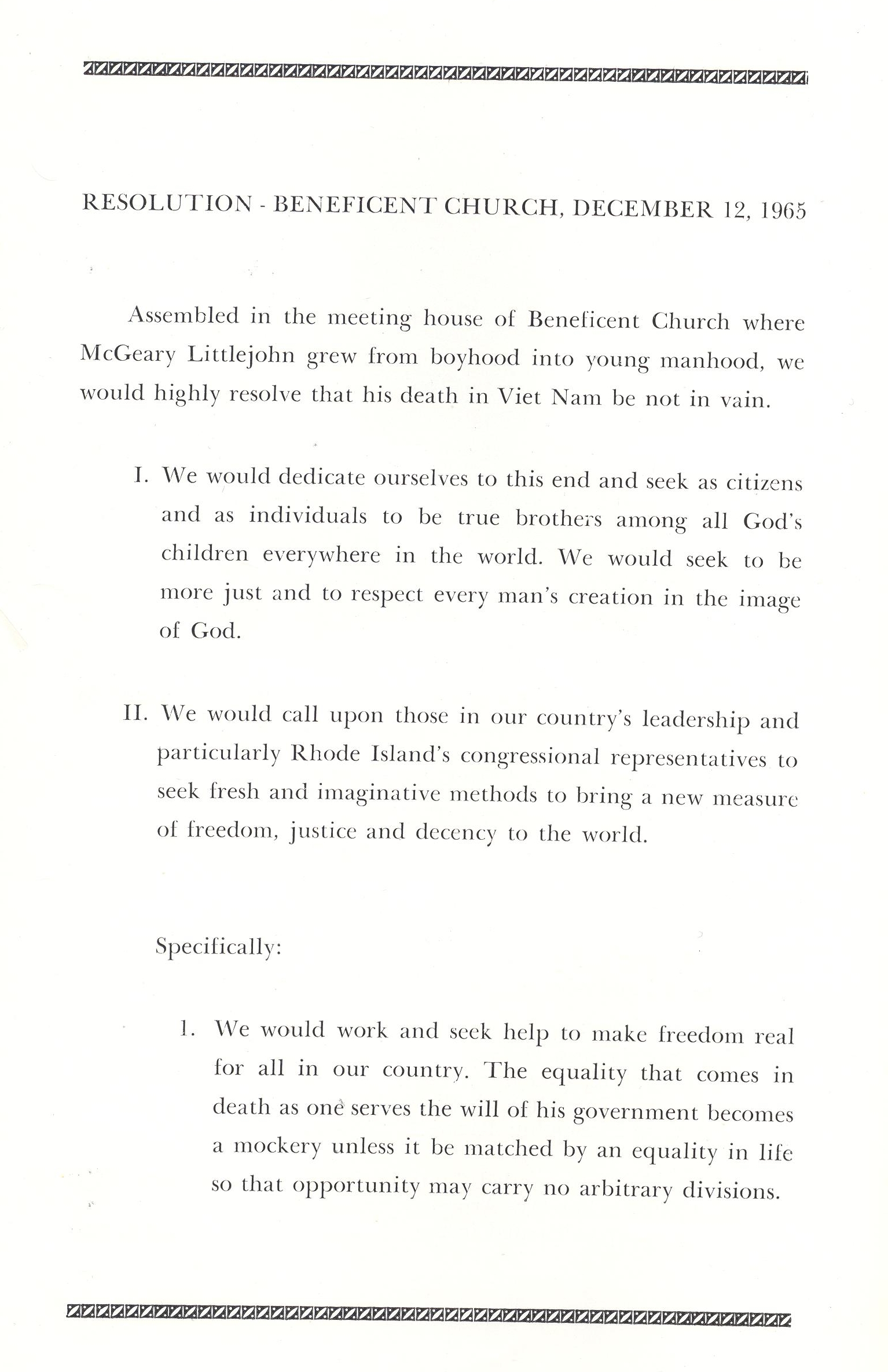
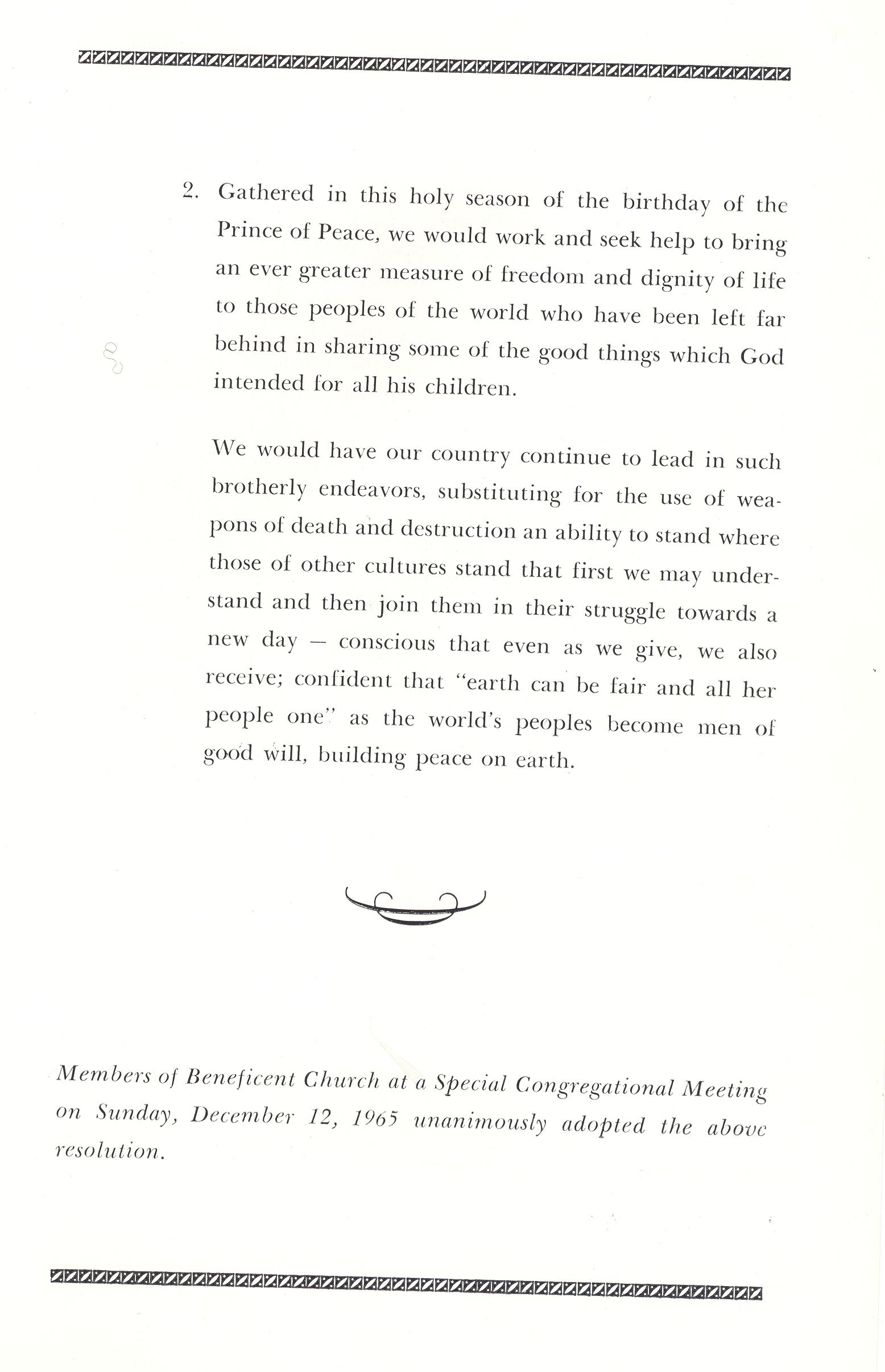
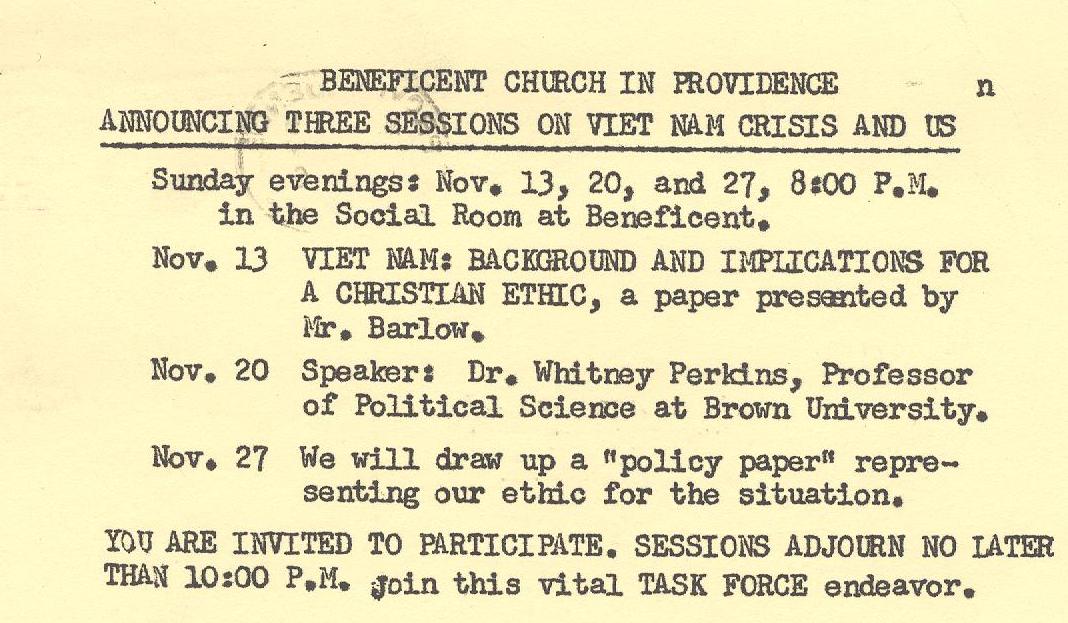
On Christmas day, 1966, the Providence Journal highlighted this work with a front page story titled “Church Group Offers Plan For Vietnam”.
“A Christian Ethic for Viet Nam” outlined 7 steps that urged the United States government to take to end the Vietnam War. The steps included the cessation of an escalation of war and the bombing of North Vietnam, supporting all steps to bring about elections in Vietnam and upon the withdrawal of military troops to send in many Peace Corps volunteers to help the local populations with land reform and the alleviation of poverty. Step 7 called for an ending of military action to be replaced with a police action.
